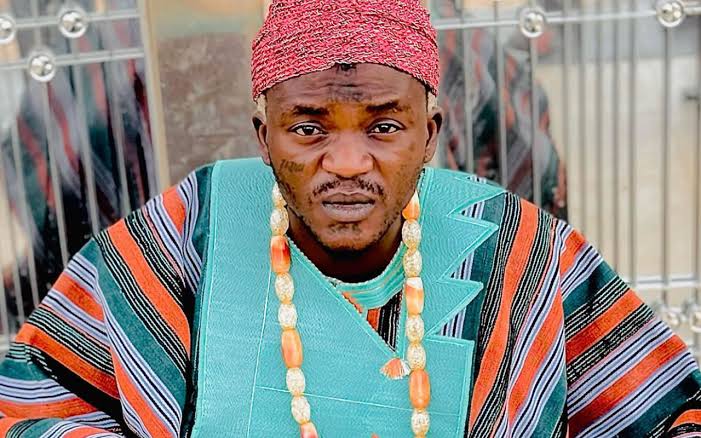The Federal Government has earmarked a total of N13,805,814,220 for the upkeep of former presidents, vice-presidents, heads of state, Chiefs of General Staff, retired heads of service, permanent secretaries, as well as retired heads of government agencies and parastatals in the 2024 fiscal year.
The beneficiaries include former Presidents Olusegun Obasanjo, Goodluck Jonathan and Muhammadu Buhari, as well as ex-vice-presidents Atiku Abubakar, Namadi Sambo and Prof Yemi Osinbajo.
Also expected to benefit from the windfall are ex-military Heads of State, General Yakubu Gowon and General Abdusalami Abubakar, as well as a former dictator and self-styled military President, General Ibrahim Babangida, and a former Chief of General Staff, Commodore Ebitu Ukiwe (retd.).
Also, N1tn was provisioned for the public service wage adjustment for government Ministries, Departments and Agencies (including arrears of promotion and salary increases, and payment of severance benefits and minimum wage-related adjustments).
A breakdown shows that the entitlements of former presidents/heads of states and vice-presidents/chief of general staff will cost N2.3bn, while N10.5bn is proposed as benefits for retired heads of service, permanent secretaries and professors.
The payment of severance benefits to retired heads of government agencies and parastatals is proposed to cost N1bn.
Other allocations include N65bn for the Presidential Amnesty Programme for the reintegration of transformed ex-militants; N1bn for the Office of the Presidential Adviser on Energy; and N108bn for unnamed special projects.
The government is also proposing the sum of N40bn to offset electricity debts owed power distribution companies by all MDAs.
The item listed as ‘Settlement of MDAs’ electricity debts’, was contained in the sectoral allocation details released by the Chairman, Senate Committee on Appropriations, Solomon Adeola, and obtained by Sunday PUNCH.
According to Adeola, the details of the budget have been released to allay the fears of lawmakers and Nigerians.
He noted that the details had been circulated to allow lawmakers to study and see the allocations TO various sectors.
The Executive Director, Association of Nigerian Electricity Distributors, Sunday Oduntan, in January 2022 revealed that all the Federal Government MDAs and the military owed the electricity distribution companies at least N90bn.
He said though discussions were ongoing as regards settlement, the debt had continued to pile up over the years since the power sector was privatised in November 2013.
He said, “All MDAs’ debt is more than N90bn and the military is part of that. We came on board in 2013 and since then, how much has been paid by the MDAs?
“There was a time when a former minister of power said they (the government) had concluded arrangements on how to settle the debt, but as I speak with you, the bills are still unpaid. Since privatisation, there have been issues around the MDAs’ debt.”
Though the government budgeted N27bn in 2022 and N40bn in 2023 for the settlement of the debt, it is unclear if it made payments to the Discos.
The ministries of Works, Finance, Education and Defence and others got lion’s shares of the N8.7tn capital component of the N27.5tn 2024 budget as contained in sectoral allocation details.
In the proposed budget, the Ministry of Works is allocated N521.3bn, followed by the Ministry of Finance with N519.9bn, while N308.2bn is earmarked for the Ministry of Defence.
Similarly, the Federal Ministry of Health and Social Welfare is to get N304.4bn, while the Education ministry has an allocation of N265.4bn.
Others are Ministry of Power, N264.2bn, government-owned enterprises, N820.9bn; Tertiary Education Trust Fund, N665bn; Housing and Urban Development ministry, N96.9bn; Water Resources ministry, N87.7bn; and Police Affairs ministry, N69bn.
The National Assembly under statutory transfers gets N198bn; the Niger Delta Development Commission, N324.8bn; Universal Basic Education Board, N251.4bn; National Judicial Council, N165bn; North East Development Commission, N126bn; and Basic Health Care Provision Fund, N125.7bn.
Under capital supplementation, zonal intervention, otherwise called constituency projects for federal lawmakers, gets N100bn; special projects, N108bn; contingency (capital), N200bn; aid and grants funded projects, N685.6bn; and National Social Investment Programme Agency, N100bn.
Minister on budget
Meanwhile, the Minister of Information and National Orientation, Mohammed Idris, on Saturday expressed optimism that the 2024 budget would mark a transformative era in the country once it was passed by the National Assembly.
The minister, while declaring open the Kaduna State chapter of the Nigerian Institute of Public Relations Annual Public Lecture/Annual General Meeting, noted that the budget signified a pivotal step towards the realisation of Tinubu administration’s Renewed Hope Agenda.
In addition to its focus on development priorities, the minister noted that the budget demonstrated a commitment to fiscal responsibility.
According to him, the administration recognises the importance of prudent financial management as the foundation for long-term economic stability.
Idris said, “Just this week, he (Tinubu) presented the 2024 Appropriation Bill of N27.5tn to the National Assembly, the first full-year budget of his administration. The budget as presented signifies a pivotal step towards the realisation of his Renewed Hope Agenda by aligning fiscal strategies and priorities with broader national development objectives.
“As the 2024 appropriation bill moves through the legislative process, we are very optimistic that its passage will mark the beginning of a transformative era, bringing tangible improvements to the lives of Nigerians. Before the budget presentation, President Tinubu had assented to an equally important supplementary budget, signed several landmark bills and Executive Orders into law, and inaugurated special presidential initiatives on fiscal policy reform, Compressed Natural Gas, food security, MSME support, and other critical areas of the economy. The goal has been to deliver relief to the Nigerian people and lay the groundwork for true and lasting prosperity.
“At this juncture, let me remind us that one of the pillars of President Bola Ahmed Tinubu’s eight-point agenda is inclusivity, which means inclusive policies and programmes for all segments of the population, especially youths and women. You can see manifestations of this even in the array of appointments made by the President so far, and the prominence given to young people and to women. This is not to say we have done enough, and can therefore rest on our laurels. No.
“We can still do better, and I can assure you that President Tinubu will continue to push the envelope in this regard. In addition to appointments and representation, the Tinubu Administration has very importantly been rolling out policies targeted at creating the enabling environment for Nigerians to thrive across all demographic categories.”
Economists, lawyers, CSOs react
A professor of Economics at Godfrey Okoye University, Enugu State, Felix Onah, noted that Nigerian leaders were being selfish without any thought for the common man’s suffering.
“They are budgeting for themselves and not for the common man. At this point in our economy, the government should be thinking of the citizens, but that is not the case; they are thinking about themselves and not about those they are governing,” he said.
Onah stated that the Senate had the power to stop the budget from being passed, but noted that it would pass it despite the ridiculous spending, adding that the President had the Senate in his pockets.
He said, “This is money not well spent; this kind of money should be budgeted for the welfare of the masses. This is also happening because Nigerians have lost the ability to speak out. The government has taken the public for granted. They are not thinking of the good of Nigerians; they are thinking for themselves only and there’s nothing we can do about it.”
A lecturer at the Department of Agricultural Economics, University of Ibadan, Yekinni Taofeek, noted that the budget was insensitive to the country’s current economic state.
He said, “The government needs to be more sensitive. When they call for sacrifice from the citizens, they should also see that they are also making sacrifices, especially with how they’ll manage our finances.
“You can’t be telling the citizens to endure, yet you’re not doing anything. It’s not bad to take care of those who have served the country; however, it is insensitive to the current circumstances in the country, especially when the government has declared as appalling the state of the economy.”
Taofeek also urged the National Assembly not to allow the budget to pass without removing the amount for the ex-leaders and allocating it to serve other useful purposes.
The Executive Director, Human Rights & Justice Group International, Mr Prince Eze, called on the President to suspend the release of such funds.
He said, “That is undemocratic and inhuman considering the economic situation in the country. The minimum wage of workers in Nigeria is the worst in the world. Such funds should be used to cushion the hardship of the masses.
“How can people be going through hard times and you are busy allocating money to past presidents and vice presidents? They don’t need the money. They already made so much when they were in office. That decision should be suspended immediately. Such funds should be channelled into the economy and security.”
Human rights activist and Senior Advocate of Nigeria, Ebun-Olu Adegboruwa, said the government needed to practice what it was preaching to Nigerians on bearing the burden of fuel subsidy removal.
He noted that it would amount to double compensation as most of the former presidents and vice-presidents were also benefiting from other services they had rendered to the nation in the past.
He said, “It is the issue of double compensation because most of the past leaders, especially those in the military, who are earning salaries and pensions as retired generals, are also earning humongous benefits as past presidents, and this is what we think that the government should look into.
“So, if the President is speaking to us on frugality and the need to bear the burden of subsidy removal and other inflationary trends that we are experiencing, I think charity should begin at home.”
On his part, human rights lawyer, Jiti Ogunye, said the Tinubu administration was contradictory in its sermon to Nigerians, stressing that the cost of governance was too high.
He added that it was an uncaring attitude for the Presidency to budget such a humongous sum for the welfare of past presidents and vice-presidents amid economic hardship.
Ogunye stated, “The Tinubu administration, since it came to power, has been sermonising on the need for Nigerians to tolerate the current hardship, stating clearly that it realises that people are going through difficulties, but assuring that in the end things will be better.
“I have not seen the administration observe what it preaches; so, it is contradictory for an administration to be asking people to bear pains for the future to be brighter and prosperous and in the immediate, also spending this kind of money. I have not seen a trimming down, or a change of attitude. Things are getting more difficult and the cost of governance is getting more expensive.”
Punch





